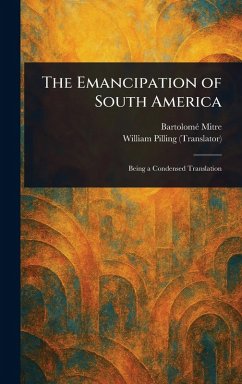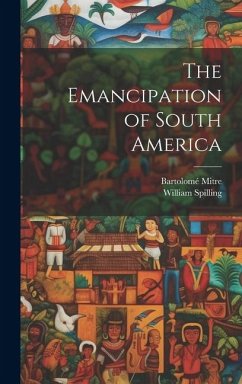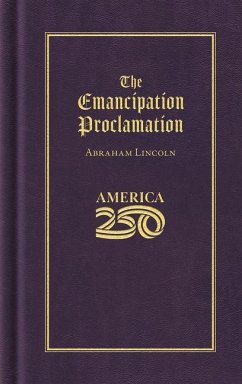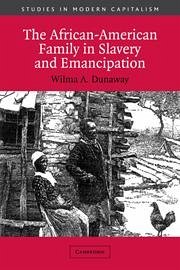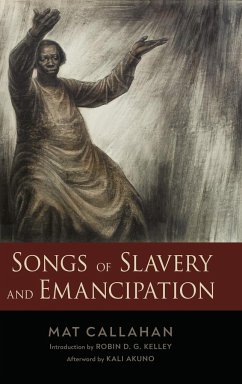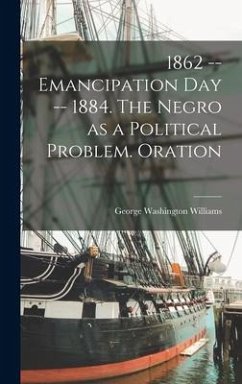
The Emancipation of South America
Versandkostenfrei!
Versandfertig in über 4 Wochen
62,99 €
inkl. MwSt.

PAYBACK Punkte
31 °P sammeln!
His preface is dated at the jail in Lujan in March 1875, during his incarceration and trial accused of having led a rebellion against the national government. As a matter of fact the three volumes long final version appeared in 1887, an amplification and completion of the original text published in the "La Naci?n" newspaper ob Buenos Aires twelve years before. Mitre expected this work to be, along with his writings about Manuel Belgrano published some years before, the basis of a clear vision on the origins of Argentina, supported by a solid foundation of documents and a serious and scientific...
His preface is dated at the jail in Lujan in March 1875, during his incarceration and trial accused of having led a rebellion against the national government. As a matter of fact the three volumes long final version appeared in 1887, an amplification and completion of the original text published in the "La Naci?n" newspaper ob Buenos Aires twelve years before. Mitre expected this work to be, along with his writings about Manuel Belgrano published some years before, the basis of a clear vision on the origins of Argentina, supported by a solid foundation of documents and a serious and scientific methodology. In 1890, before travelling to Europe, general Bartolomé Mitre asked William Pilling to publish in London an English translation of his "History of San Martin", authorising the translator to condense the text, if necessary. William Pilling's book is an accurate expression of the sense and content of the work by Mitre, and constitutes an excellent contribution to the historiography of the independentist revolution in Latin America. This edition is based upon the original Pilling English version, a successful sinthesis of this classic argentine historiographic text.



